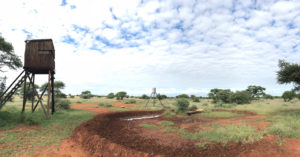What Vaccinations are Required to Travel to South Africa?
Diseases
South Africa is mostly free of malaria, west nile, typhoid, polio and dengue diseases. The northern part of the country is a little more exposed to these; however. HIV/AIDS is very prevalent throughout the country. Exercise proper precautions and you should remain safe from these diseases. A common way that these diseases are spread through contaminated water and food, bodily fluids and mosquitos. You can avoid these diseases by vaccinations and safe practices.
Vaccinations
There are NO special vaccinations required, which makes it a convenient exotic place to travel. The only required vaccination is for those traveling from Yellow Fever endemic areas OR if you have been in a Yellow Fever endemic area for over twelve hours. Check your layovers and times to ensure that you will not be in a Yellow Fever country for over 12 hours. All travelers; however, should be up to date on their routine vaccinations. There are other optional vaccines you may choose to get, but are not required. Check out what the CDC has to say about vaccines for traveling to South Africa.
Safe Practices
Food and Drink
A common way to get disease is through contaminated food or water. Vaccines can not prevent from acquiring disease this way. Make sure that any fruits and vegetables you eat are thoroughly washed, ensure that meats are fully cooked, and always consume pasteurized dairy. Drink bottled water, carbonated or hot drinks. Do not drink anything with tap or well water.
Bugs
To avoid bug bites, where clothing that covers your skin such as long sleeves and pants. Additionally, you can use bug repellent. Sleep in AC or screen rooms with a bed net.
Bodily Fluids
Make sure you don’t share anything that breaks the skin such as needles, tattoos, acupuncture and or piercings.
Medical Treatment
Know where you can get trusted medical treatment. Keep contact information with you at all times. In addition, learn how you can treat most minor injuries by taking a first aid course.



